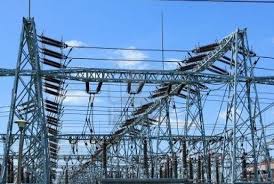- To sell additional 100MW to Paradise City, Calabar
- Power part of Nigeria’s 3,742MW stranded power
Nigeria is to sell 170 megawatts of electricity capacity to Republic of Togo, a West African and ECOWAS neighbour. The power described as “excess capacity,” is coming from the Niger Delta Power Holding Company (NDPHC) plant in Calabar, Cross River State.

Kassim Abdullahi, executive director, generation, after an inspection visit to the Calabar power plant described the plant as one of the best-performing of all the NDPHC power plants.
“Calabar is doing very well. We have gas, we have a good network for dispatch. It is one of the best power plants of the NDPHC,” he said.
According to him, “Calabar is one of the NDPHC power stations where we have a bilateral agreement with Togo, where we supply about 70MW; and also, there are on-going discussions with other potential customers in Calabar like the Paradise City in Calabar where they are willing to take 100MW.”
Abdullahi, sounding confident on the impending electric power sale deal with Togo, said: “This is the way to go, we are working tirelessly to getting more eligible customers to ensure that these available stranded power that we have in most of the power stations are dispatched.”
With a problematic electric power system, Nigeria grapples with evacuating the electricity it manages to generate. As of end of last year, the total stranded power rose by 263 per cent to 3,742 MW. This is huge compared with 1,031 MW stranded power in 2013, at the time of privatization of the nation’s power sector.
Stranded power or energy is when energy is generated but it cannot be transmitted or distributed due to system and infrastructure failures. The Transmission Company of Nigeria (TCN) has endlessly accused the nation’s 11 electricity distribution companies (DisCos) of load rejection, leading to occurrence of stranded energy or electricity.
Oyewale Olugbenga John, chief operating officer (COO) of Calabar power plant, while thanking the NDPHC management for the continued support to the growth of the plant, said they were able to surmount the enormous challenges, because of the cooperation between NDPHC and Calabar plant. “With the experience we have gained over time from other power plants, we are able to keep the plant going because of cooperation in the O&M team,” he said.
The Niger Delta Power Holding Company Limited was registered as a separate company as part of the Nigerian National Integrated Power Project (NIPP) conceived in 2004 under the Olusegun Obasanjo administration. It was formed to address insufficient electric power generation, amid excessive gas flaring from oil exploration in the Niger Delta region.
NDPHC has seven power plants designed in gas-producing states as part of the NIPP project. They are: Ihovbor Power Station Benin, Edo State, with capacity of 4 x 112.5 MW (ISO 126 MW); Calabar Power Station, Cross River State, with the capacity of 5 x 112.5 MW (ISO 126 MW); Egbema Power Station, Imo State, with the capacity of 3 x 112.5 MW (ISO 126 MW); Gbarain Power Station, Yenagoa, Bayelsa State, with the capacity of 2 x 112.5 MW (ISO 126 MW). Others are: Sapele Power Station, Delta State, with the capacity of 4 x 112.5 MW (ISO 126 MW), and Omoku Power Station, Rivers State, with the capacity of 2 x 112.5 MW (ISO 126 MW).









